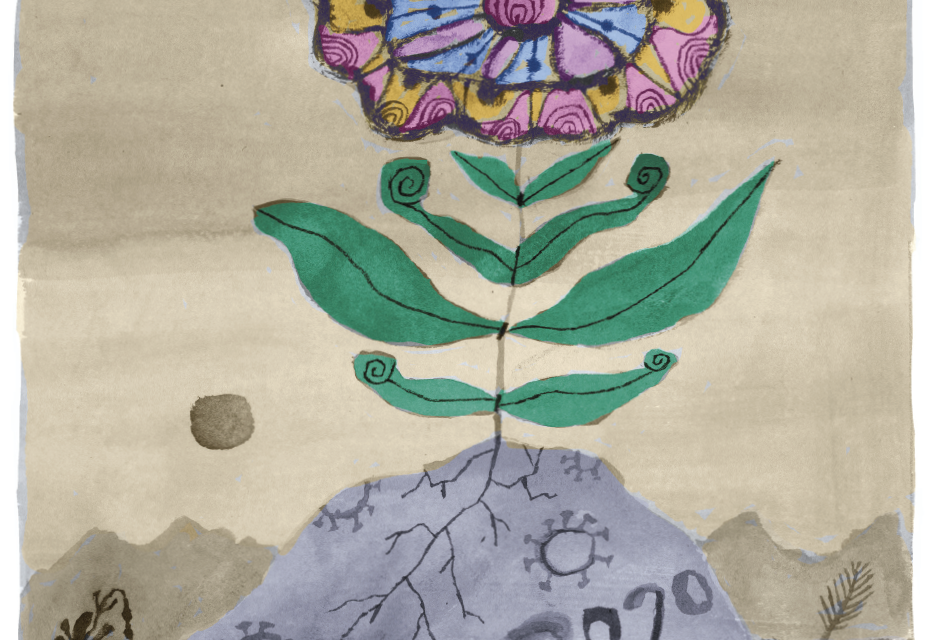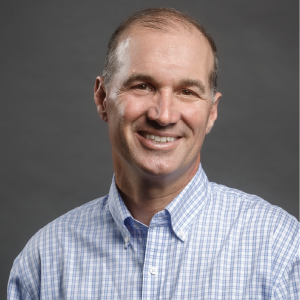
Challenge(s) Accepted

Our twin daughters arrived two months early. Although my wife, Nancy, and I knew the elevated risks of a twin pregnancy, nothing could have prepared us for the trauma of seeing our babies in neonatal intensive care for almost three weeks or for the two months they remained in the hospital after that. Twenty-four years later, we are blessed with two healthy and thriving daughters, MAGGIE ’14 and EMILY ’14. But during those months, almost every other thing in our lives fell away as we faced the impossible test of watching our children suffer.
That time also built in us a resilience we have carried in our family ever since, a muscle memory for how to handle challenge even in the darkest moments. For Nancy and me, this resilience has been a gift that we know comes from pain. We reprioritized our lives; our world became small and intensely focused. Although that period is now, thankfully, a distant memory, it has continued to help us separate what is truly important from what is not.
Last year, the covid-19 pandemic forced the world into a crisis the likes of which few have ever faced. The devastating toll on human lives, the grief and isolation, the stress on medical professionals, and resources stretched to their absolute limits all contributed to a painful time for the world, the country, and our own Milton community.
 This time has shone a brilliant light on the importance of science and medicine and of connections, patience, and kindness. It has taught us difficult lessons in rising to the occasion and doing what’s right, even when the hardships and interruptions of living through the pandemic have caused us to be less than our best selves.
This time has shone a brilliant light on the importance of science and medicine and of connections, patience, and kindness. It has taught us difficult lessons in rising to the occasion and doing what’s right, even when the hardships and interruptions of living through the pandemic have caused us to be less than our best selves.
It has also spurred collaboration and innovation in ways that will change us forever.
Necessity is the mother of invention, the saying goes. Anytime societies have faced crises, innovation and the indomitable human will to thrive have driven new developments in science, medicine, communication, food, and agriculture. The light bulb, the jet engine, refrigeration, computers, blood banks— even superglue—are all solutions born of adversity. The same holds true for the natural world: Plants and animals, in response to predators and environmental shifts, evolve to build strength and protect their own survival. Adaptation is the key to living in a sometimes volatile world.
At Milton, the need to adapt and build resilience became clear in 2020. Facing the ongoing pandemic and a vital movement for racial justice, we became witnesses to the power of change. We turned a critical eye on teaching and learning to find the best ways to reach students, whether in our physical classrooms or halfway around the world. We established a Diversity, Equity, and Inclusion (DEI) Commission, whose members are investigating what we need to build a more inclusive, anti- racist community. We test each person on campus for covid-19 weekly, monitor a daily health attestation program, and have de-densified campus, among other efforts, to keep all members of the community safe. We also made significant investments in technology and our physical spaces to promote a healthy and functional school.
Milton students have risen to the challenges of this past year with remarkable flexibility, creating points of support and connection with one another, organizing virtual workouts with team members, performing music and drama while physically distant, advocating for justice, and serving the local community from all over the world. They have built resilience, together and as individuals, that will serve them the rest of their lives.
So, too, has our School. Actions in response to these specific global crises will benefit Milton in the years to come. Through extensive professional development, our teachers have committed to a curriculum focused on student outcomes and growth—one that teaches through an anti-racist lens and challenges students at all grade levels to be engaged, critical thinkers. Our work on DEI issues focuses not only on immediate needs but also on efforts that will build a more just and inclusive Milton. Many alumni have strengthened their commitment to Milton, virtually visiting classrooms to share their knowledge and experience. The costs of managing the School in a pandemic were incurred with the future in mind.
In these pages you will find snapshots of a moment unlike any other in recent history and a look ahead to what’s next. We have all received intensive training in handling the unexpected. Our students have shown us that they are ready for anything the world holds for them, and many alumni are focusing on big solutions for the future. I hope you will find, as I do, that the adversity of the present will strengthen our community and all its people for the future.
By Todd B. Bland




